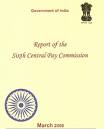Indian Cabinet Sanctions Pay Hike For 5m Federal Staff
The Indian cabinet yesterday sanctioned an average 21% pay increase for 5m federal  employees and military staff, the first revision of government pay scales during the last 12 years.
employees and military staff, the first revision of government pay scales during the last 12 years.
P. Chidambaram, finance minister, said the civil servants' pay hike that will be backdated to January 1 2006, will cost Indian taxpayers $3.6bn this year, comprising part of the debt from 2006.
Moreover, Indian Railways will have to pay $1.5bn to its staff.
The pay increase comes at a time of concern about growing inflation that on Thursday was said to have hit a 13-year high of 12.4% for the 12 months to the beginning of August.
Economic experts have also warned about the health of government funds, given New Delhi's mounting subsidy load for petroleum and other necessary items. Such off-budget liabilities are now estimated to surpass 5% of gross domestic product (GDP).
Subir Gokarn, chief economist for the Asia-Pacific region at Standard & Poor's, stated that with elections due by the end of May 2009, the Congress-led coalition government had little choice but to implement suggestions formed earlier this year by a formal pay panel called the ‘Sixth Pay Commission.’
"Not having done it would have cost them heavily," he said.
Mr. Gokarn figured that the pay hike would cost 0.4-0.5% of GDP, a pittance by his calculation compared with the size of the government's off-budget liabilities.
Mr. Chidambaram said the salary rise had been factored into the government budget for the current fiscal year and would not affect the budget deficit target of 2.5 per cent of GDP.
Dr. Manmohan Singh is expected formally to declare the wage increase in his televised national address today to celebrate the 61st anniversary of India’s independence.
While the increase will only benefit federal staff, India’s state governments will most likely feel pressure to follow suit as elections loom.
The pay arrears will be allotted in two parts, with 40% during the year ending March 2009 and the remaining next year. Officials will get higher wages starting by the coming month.
Mr. Chidambaram on Thursday showed "distress" at the fresh increase in India’s inflationary figures.
The central bank, in July 2008, increased its benchmark interest rate by 50 basis points to a seven-year high of 9%, the third increase in two months.
Mr. Gokarn told that compressed monetary plan would counterbalance the inflationary impact of the pay increase.
“This does obviously go against the move of restraining demand, but that has been accommodated by [a] relatively tight monetary stance,” he said.
The decision also comes just a day after the PM’s Economic Advisory Council admonished that the fiscal situation of the government "no longer looks stable or sustainable" because of the increasing subsidy bill.
Mr. Surjit Bhalla, managing director of Oxus Research and Investments, stated that pay hikes were essential for the administration to fight with the private sector for talented candidates.
“Pay rises are normal,” Mr. Bhalla said. “Unlike the private sector, [government staff] don't get productivity increases as each year goes by . . You have to do it through this massive exercise."